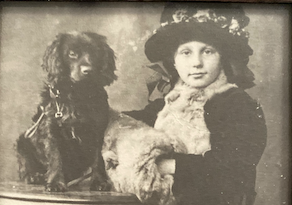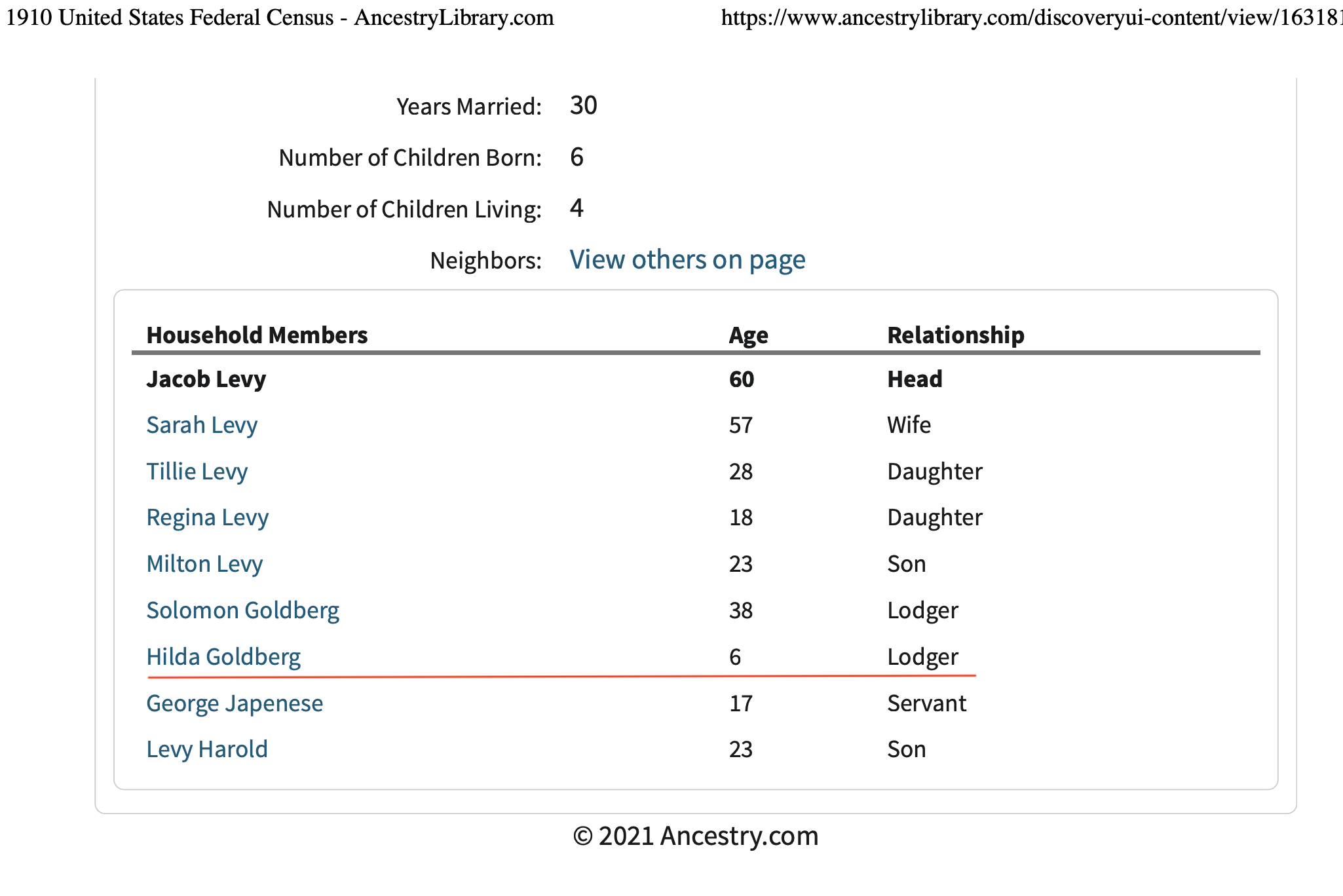#10
Fieldpost 211, 14. December 1917 (finished 17. December 1917)
My dear ones!
The good news from our front here, which you must have heard with joy, has probably also reassured you that the pause in my letter writing did not signify anything bad. As I told you already by postcard, I was once again very busy and didn’t have much time or space to write. That is still true, as you can see from what I am going to describe to you.
Therefore, it is very convenient for me that when this letter arrives in Brüx, it will find all of you together, my dear ones. This way it will be easier for me to do justice to your wishes for more detail.
I will be so badly behaved and start talking about myself right away – it’s more convenient for me.
Since the 30th I have more or less told you the most important thing: that I have been ordered to join the machine gun company. I was not very happy about that. I had the most beautiful life imaginable. The Russians have almost never fired guns, the Romanians very rarely, and even before the armistice, total calm was almost a matter of course. Until then, the outpost position was the only somewhat dangerous place because of artillery and mines, but now it was used for recreation. One had good food, warm shelter, little duty, saw some interesting things; whereas in Keseren one had to build all roads and positions, often in the middle of the night.
The Russians on the other side of the Seretz came very freely down to the riverside, and heard speeches and conversations which unfortunately we could not understand. During one such episode, someone (an officer candidate) shot at a neighboring outpost. He was dragged to the river bank and they beat him black and blue in front of our eyes. Discipline must be maintained!
During the night of the 30th, we saw that the people across the river firing an enormous amount of lightning ammunition: they celebrated the truce with fireworks and music. We didn’t hear about it until the next day and it only applied partially to our location. I would have loved to have spent the next few days in position with the company, but then came my orders.
I already wrote that in Keseren, I had a nice shack (which we had to fix up first) with electric light and almost entire windows and doors, as well as officers’ food, privileges, and my own orderly.
Anyway, I already knew about the announcement of the armistice here in B., positioned about an hour and a half behind the first line.
In six weeks, I am supposed to learn perfectly about a new weapon, in all its details, starting from the service of the lowest soldier up to the leadership of the machine gun company. Accordingly, my hours of duty are 6:30- 11; 2-5, 6-7. Partly lessons, partly the equipment, partly shooting. In all weather. For example, now there is bitter cold. Our winter equipment is spotless. Until the day before yesterday I had a bad room – especially because of a lack of light and wood for heating. The last is a very bad thing on our otherwise ideal front. Here there are no forests, the trees in the widely disbursed villages have to be left standing because they offer the only natural hiding places in this lowland, which is covered with grass and flat as a table. The only means of acquiring wood is euphemistically called “comandeering.” Since the day before yesterday, I have been living with 4 other officer candidates, which is a little better.
Hauptman Hladik is an active commander — not evil, but unrelenting.
Especially we who are platoon commanders-to-be are being challenged and must work very hard. Strict discipline, like in peacetime. My inspector is a deputy officer, a nice person. The food is – despite poor conditions and compared to the food with the Landsturm -- plentiful.
In the above, I gave a truthful description, but I don’t mean to say that I am badly off. I have settled in quickly, am healthy, and quite content.
Because: first of all, later I have the prospect of becoming a platoon commander in a machine gun formation, and to enjoy all the benefits granted to this kind of weapon.
Second, there is the need to study (we have also text books and specialist magazines here, even technical literature!) and the shaking up of my brain, which comes with that studying has been good for my brainbox which has been idling for too long. (By the way, a very interesting course of study)
Third, I have good comrades with whom to socialize. We 5 cadets that I already mentioned (1 Neuner – [perhaps also from Landsturm #9], 1 Viennese, 2 Trieste, and myself) are all of the same age, musically inclined, similar interests – we couldn’t have done better.
It’s a shame that it only lasts 4-5 weeks, because in the former Landsturm environment, despite its coziness and lack of adventure, in general people were too old for me. Now we have fun and we amuse ourselves with the civilian population (here there are some, but poor and downtrodden). If we have enough time, sometimes we have a few bottles of wine brought to us -- it is pretty good and cheap here -- and we have the gypsies play something. It is real carefree camp life!
At Christmas I must stay here! So, I cannot fulfill the wishes you have often voiced to be at home with all of you! My time will come in 4, 5, or 6 months. As much as I can, I will spend the holidays (we will not have much free time anyway) with the comrades who all complain that nowadays they are not receiving the same kind of shipments from their homeland as in former years, when it was a better situation back home.
As you may know, Romania is a fairytale land from which you can easily send packages, flour and all other kinds of groceries to Austria. In the past, as a company the field troops were sent directly flour, peas, etc. Now these rations have been so much diminished that I cannot count on being given anything in the near future. A second way is the buying of military central food supplies for officers. I have already gone there and spoken in our central food depot (Landsturm #9) and with a lot of effort I have been promised a little bit of flour and peas. But unfortunately, I was called away before.
The third way: shopping with civilians. Here there is not much to be had. I want to see if I can bargain for a few things, when the direct purchasing and appropriation officers go further into the interior. It is also difficult to get boxes and flour sacks. Then also (hopefully only temporary) the barring of “packages to home.” I’m deliberately not asking for money for this purpose, because there I don’t want to take on a promise which I can’t keep. If I am really hard up, I can always borrow something. My own needs until now have been met with my pay. Of the money that I took with me from Leitmeritz, there remains for me after equipment, buying gloves, lightning articles, a small amount which most likely will be spent for our Christmas celebration.
This is all that I have to say about myself. Therefore, I will now answer each of your letters and cards:
Dear Papa!
The letter of the 28th of November, which was forwarded to me from Landsturm #9, made me especially happy because of the news of Erich’s promotion [?]. Hopefully, he will soon move into officer’s quarters and the days of his suffering soon will be over, should he still be in Russia.
I just don’t wish him to have to stick his nose in another time!
It also could happen to me on another front. Well, I expect everything with calm and confidence – in the end, the war will be over! The lack of newspapers, especially local ones, is really noticeable here – I learn about the news of the day too late. As far as money is concerned, I would be very grateful if you would send me a small money reserve. It is not necessary because I do not require more than I get paid, but I had many expenses in Morganda and on the trip, so that most of the money I received in August from Robert, meaning from you, has been used up. I am very happy to hear that you are doing well as far as your service is concerned. Spend the vacation -- which according to others’ letters you will probably get – pleasantly, and please send me a few lines from there!
—-
Dear Robert!
One after another of your letters has arrived. Also, the one address addressed to FP 211 with a card from Erich, the last from December 8th. Many thanks for your detailed report!
Please give my greetings to all friends who ask about me. For example, Lido (is his address still FP 461/1?), Robert Ullman. I also ask you to write to Erich for me – I cannot write to him directly. I will soon send a letter to you to be passed on to him, thus far I haven’t been able to. If you want to send me something in a Fieldpost package, I ask for (depending on availability) candles, cigarettes (better in a letter), a (yellow) cadet collar rosette, stationery (the same quality as this). Of course, it doesn’t have to be. Do you have new photos or drawings which you could send me? How about your law and language studies? Write always what you are doing and how things are going. I enjoy every letter and am only sorry that I can’t answer as often as I would like.
—-
To my dear Käthe: I thank you for your many cards, you will find all your questions answered in the first part of this letter. I expect from your conversation with Papa, the final resolution of the difficult question, Srachatitz [?] or not? Unfortunately, I cannot picture how it has been going for you since that first unpleasant time, because the first detailed letters were missing and the cards were silent concerning the most important issue. Maybe we will catch up?
The fact that dear Grandmother insists on writing long letters to me is proof that she thinks and worries about me more than I deserve. I have confirmed your letter to Morganda, haven’t I? Did the answer not arrive?
—-
Dear Helen!
You too will be in Brüx when these lines arrive and I hope you will find everyone healthy. I thought that you had fallen ill when you moved, but then came your letter of the 10th and two packages with 4 [lottery tickets? Treats?] The gloves have not yet arrived. My dearest gratitude for these things! Only after I sent you my requests did I realize how difficult it is to get these things. This comes about because of the ignorance which is common in the field about the difficult conditions back home! We just say: send it! I hope that at least the money got there?!
—-
I wish all of you a happy vacation and holidays. I don’t have to tell you how much I would love to be there.
During this time, think of me, Your son, brother, etc.
Paul

















































